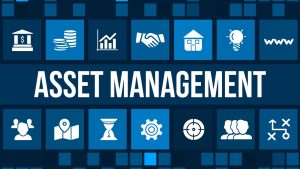An Enterprise Resource Planning (ERP) system is a software solution that helps companies manage a corporation’s day-to-day processes. While there are many ERP solutions today, simply incorporating one into an organisation’s operation will not solve all problems. In fact, analysts have stated that approximately 75 per cent of ERP projects fail due to the lack of knowledge companies hold on ERP systems. The company needs to thoroughly understand the features of the ERP system to understand how it can help them. Without such knowledge, businesses will unknowingly not be receiving their ROI correctly. This article will describe seven ways a company can ensure that they are gaining the best out of their ERP system so that organisations can reach the maximum potential of their industry.
Seven Ways To Know You Are Getting Your Money’s Worth
ERP systems are not magical solutions. It has a scientific or mathematical algorithm which ensures that daily processes are streamlined. Humans must take the time to understand how an ERP system’s potential can be maximised to ensure that it executes all roles accurately. Here are seven things to consider as a starting point to ensure a company receives its ROI.
Identify Your Needs
One of the first things a company needs to do when incorporating an ERP system is to identify its business needs. As no two organisations are alike, it is important to take time to make a list of features that would specifically help the company. Most software vendors offer consultations to help the business identify its weaknesses and recommend what modules. Keep in mind, however, that with time, the needs of a company can also change. Thus, consider firstly whether an ERP system is customisable and secondly whether it is scalable.
Ensure It Is Updated With The Latest Features
As the business world rapidly changes, the list of demands an ERP system has to address also grows. Instead of having to consistently purchase hardware parts or new software that meets such needs, an ERP system should be updateable. In terms of this, the easiest thing to do is to invest in a web-based or cloud-based system that carries out timely ERPs updates without causing any damage to the existing data. Updates in this regard are automatically carried out or can also be scheduled at a time that will result in system downtime.
Take the Recommendations Made By The System
One of the great things about an ERP system is that it produces detailed reports that provide valuable insights. This could range from detecting patterns of error that are holding a company from reaching greater heights, informing the organisation of changing business and consumer patterns, and highlighting other information related to administration, finances and more. There may be a tendency to ignore this information or take this tool for granted. However, they must take these reports seriously to ensure a company receives their ROI. As they produce data-driven conclusions with a high accuracy percentage, decision-makers should read them and take the time to understand them well. In other words, be open to making the necessary changes per the risks the reports recommend the company should make.
Provide Employees with Exclusive Training
While the ideal ERP system will not require extensive technical knowledge, it should not mean that no training should be carried out towards all employees. Ensure that employees understand the user-friendly interface and how it integrates all departments into one central location. This way, where an employee in one department requires information from another, time would not be wasted contacting someone who will require time to find it, but information can be cross-shared easily. Note that the report generation feature can also be unlocked for each department. By drawing their attention to such features, each department can have business targets to ensure their functions and operations run smoothly.
Choose the Right ERP Software Vendor
The feasibility of software mostly comes down to the ERP solution itself. This will depend on the ERP software vendor. A reputed software vendor usually has a range of features that allows companies to customise it. Where companies need more knowledge to identify which features are best suited for them, a good ERP software vendor has a team of experts open for consultations. They will do all the hard work of assessing and analysing what is going wrong in the organisation and recommend a range of modules that are best suited. They will further provide companies with the option to carry out training sessions. When researching the ERP software vendor, look for reviews about such aspects. Read through client testimonials and test out their customer service. How friendly are they? Do they give each client specialised attention? These are a few questions that indicate their level of dedication. Also, remember that the security protocols of each vendor will differ from one another. Hence, the more layers of security and encryption the vendor explains are infused into its solution, the higher chances of it providing the business with protection.
Opt For Either a Web-Based or Cloud-Based Solution
There are three primary forms of infrastructure ERP software comes in. This ranges from on-prem to web-based to cloud-based. It is hard to distinguish which solution is better as each has unique advantages. However, futuristic companies looking to transition to digital solutions completely might find it more efficient to implement a web-based or cloud-based solution. Unlike on-prem, which restricts companies from accessing information from a remote location and requires additional costs to carry out updates, a web-based or cloud-based system executes updates with no problem and provides remote access. It does not take much time, nor would it harm or put your data at risk. It also does a better job in terms of integrating data into one central location, ensuring that the reports generated are more accurate as data streams communicate with each other. While many have cited security as a concern for adopting web or cloud-based systems, note that security protocols can be assured by the software vendor’s reputation and the security practices implemented within the company culture.
Ensure The Right Data Is Being Processed
There is no point in an ERP system if it cannot filter out data irrelevant to the company’s core requirements. Hence, while an organisation will produce buckets of data streams, not all will be relevant for business purposes. Therefore, organisations muste check to ensure their ERP system is functioning properly once in a while. If not, decisions could be taken on wrong data-driven insights, which would be a huge disadvantage to offices. This is where the modules chosen by an organisation become relevant. ERPs will provide information most relevant to those features based on the modules selected.
Knowledge + Technology = Ultimate Power
Having the technology is only useful if your employees are educated on how to use them. It is not enough to simply know how to generate a report or update a system. Everyone in the company should have a comprehensive understanding of the purpose of each module so that they understand the real value of the data that the system focuses on processing. Approaching a reputed vendor that provides training is one way to ensure you maximise your ERP system. Upon purchasing such a system, reputed vendors offer and conduct training, explaining what each module is used for and how a company can change its processes with the information provided. The ultimate power is, therefore, a combination of having technology and deep knowledge of the solution.






